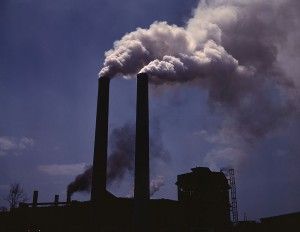Court Dishes Overdue Justice to CARB
In the matters of public relations and legislative maneuvering, Mary Nichols is a very smart woman. She has been the chairman of the California Air Resources Board (CARB, or sometimes just ARB) under both Governors Arnold Schwarzenegger and Jerry Brown.
She knows exactly how to get her way. This was exemplified more than a year ago.
Testifying before the state Assembly Natural Resources Committee, Nichols explained the necessity of AB 32, the sweeping and controversial cap-and-trade bill that would revolutionize California’s approach to greenhouse gas emissions.
“We are at a critical juncture in our history of energy development in California and the U.S.,” she told the committee on Dec. 8, 2009. “With or without climate policy, our economy will eventually rebound. However, we face a serious choice about that growth. We can choose to continue our dependency on increasingly scarce — and expensive — non-renewable resources. Or we can follow a new arc of economic growth, one that promotes clean energy and increased efficiency, diversification of transportation fuels and electrical energy sources — making our economy more resilient and our job market more robust. I hope we follow the latter path.”
By painting the need for cap-and-trade — a market-based approach to lessening greenhouse gas emissions by selling carbon credits to polluters — as a stark choice between cleaning the environment and letting everything go to hell, Nichols was showing her political genius. But she was also setting herself up for legal failure of a deliciously ironic sort.
Six months before Nichols appeared before the Natural Resources Committee, a coalition of environmental organizations sued CARB in San Francisco Superior Court. They alleged that the board had not properly considered other alternatives to cap-and-trade, which they insisted would result in dramatically increased pollution in “low income communities of color.”
See, in spite of CARB’s long insistence that environmentalists supported its cap-and-trade plans, there was a small but very determined group of activists who felt CARB’s plans were very, very bad. Not because they sided with Texas oil companies or dismissed climate change, but because they felt cap-and-trade didn’t go far enough to clean the environment.
They complained to CARB and told the board of their concerns. But when CARB went ahead anyway with cap-and-trade as though no one had uttered a complaint, the activists went to the courts.
What?! CARB acted in a high-handed, devil-may-care manner? Say it ain’t so!
Then again, CARB is the same agency that slapped a $150 million bail on a couple who were being prosecuted for selling engines that didn’t comply with state air pollution regulations. It’s also the agency that fined a motorcycle company $90,000 for mistakes made by the Department of Motor Vehicles. And it imposed a $30,000 fine on a company that failed to file a diesel emissions report.
Clearly, CARB has long enjoyed getting its own way. As the ultimate implementer of AB 32 — the law that brings forth cap-and-trade — CARB was to become one of the most powerful agencies in state history.
Well, not so fast.
Court Decision
Last week, Superior Court Judge Ernest Goldsmith agreed with the activists against CARB. “ARB seeks to create a fait accompli by premature establishment of a cap-and-trade program before alternatives can be exposed to public comment and properly evaluated by ARB itself,” Goldsmith ruled. He then ordered CARB to stop its plans to implement cap-and-trade until it studied alternative ways to cut greenhouse gases.
Plaintiffs in the suit were ecstatic. “Allowing the most entrenched polluters to increase pollution violates our environmental rights and is not the way to sop poisoning our air and slow catastrophic climate change,” Bill Gallegos, executive director of the Oakland-based Communities for a Better Environment, said in a March 21 statement. “ARB was dogmatic in its focus on cap-and-trade even though it is not effective in reducing greenhouse gases, increases pollution in heavily polluted low-income communities and communities of color, and misses the opportunity to create jobs in California. Now the ARB has a chance to do it right and consider real alternatives to pollution trading.”
As for CARB’s response to Goldsmith’s ruling, let’s just say it’s completely in character.
“We disagree with the court’s decision and intend to appeal,” said Stanley Young, CARB’s Director of Communications, in a statement. “The court did not rule in favor of any of the plaintiffs’ arguments against cap and trade. The record of the cap and trade rulemaking (not challenged in this case), including findings of the Health Impact Analysis, demonstrates that claims of environmental harm from a program of tradable allowances for greenhouse gases are unfounded.”
Of course, Young also wrote that last year CARB “completed a robust and comprehensive examination of alternatives to cap and trade with a 500 page environmental analysis.”
Anyone care to guess what the study found in regards to the feasibility of cap-and-trade?
–Anthony Pignataro
Related Articles
CA tech geniuses: Global warming strategy a flop
The smartest climate scientists at Google’s Silicon Valley research labs have now joined one of the most brilliant Microsoft techies
State voters did the right thing
June 11, 2012 By Steven Greenhut SACRAMENTO — Several years ago, Fullerton Councilman Dick Jones cornered me at a political
Arid-headed water war breaks out between LA and PHX
March 20, 2013 By Wayne Lusvardi The word arid has two meanings: insufficient rainfall to grow trees or dull and




